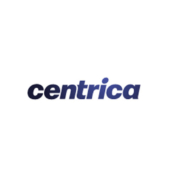Simply Joined Consulting Limited – Supply Chain Health-check
Submitted by Simply Joined Consulting Limited
Impact
Previous clients have seen Improvements to their cost base for bought in goods and services, efficiencies in lead time and customer satisfaction performance, as well as the benefits of a united workforce once they have seen and understood the activities and challenges faced by their co-workers.
Due to client confidentiality, we are unable to quote exact figures, but cost savings and improvements are generally in double digit proportions
Description of Best Practice
Our Supply Chain Health-check model guides clients through a simple process to identify and implement cost efficiency and value creation opportunities using the following steps. It is suitable for both internal and external supply chain activity from a technical, commercial, safety, people management and behavioural perspective.
Firstly, we obtain confidential feedback from all stakeholders (The good, the bad and the ugly) via a mix of questions and one to one discussions as appropriate. This is generally followed by workshops where appropriate to fully engage stakeholders and map out internal and external supply chains to identify opportunities. As an independent resource, we mitigate the potential for any conflict or discomfort between customers and suppliers or internally between employees and their peer group or line management.
The health-check activities are focussed on Customer expectations, organisational and corporate beliefs and objectives, and takes into consideration the commercial arrangements that the organisation has with its customers and suppliers.
The outcome is a realistic strategy to survive, develop or grow. The final report is submitted to the client in a format that allows the organisation to prioritise the opportunities and ensure senior level support and action where required to deal with any ‘blockers’ to implementation.
Contact: Steve Johnson
steve@simplyjoined.com




